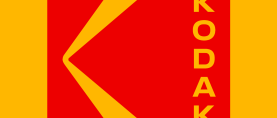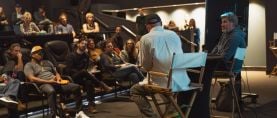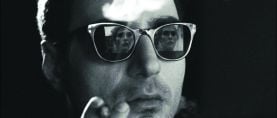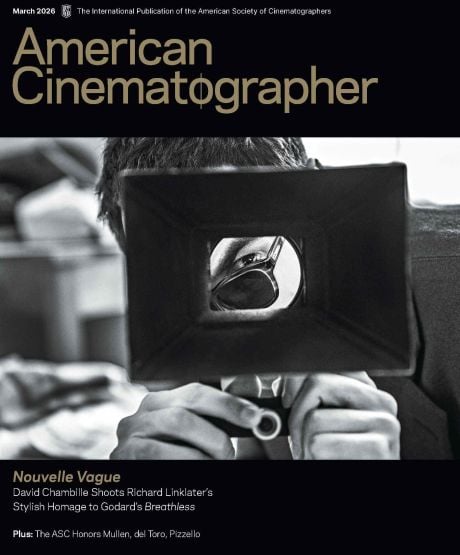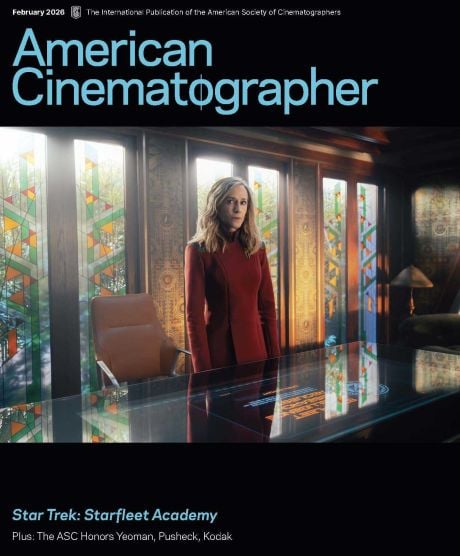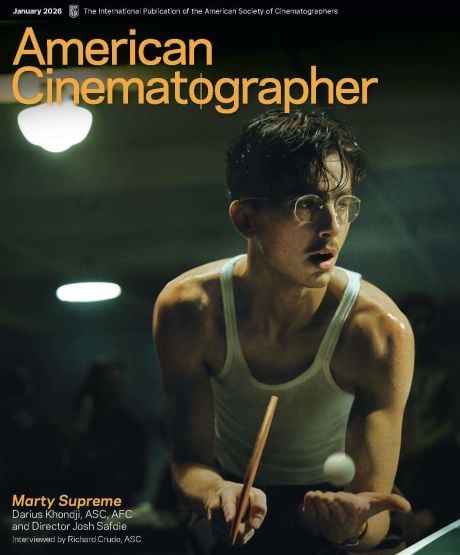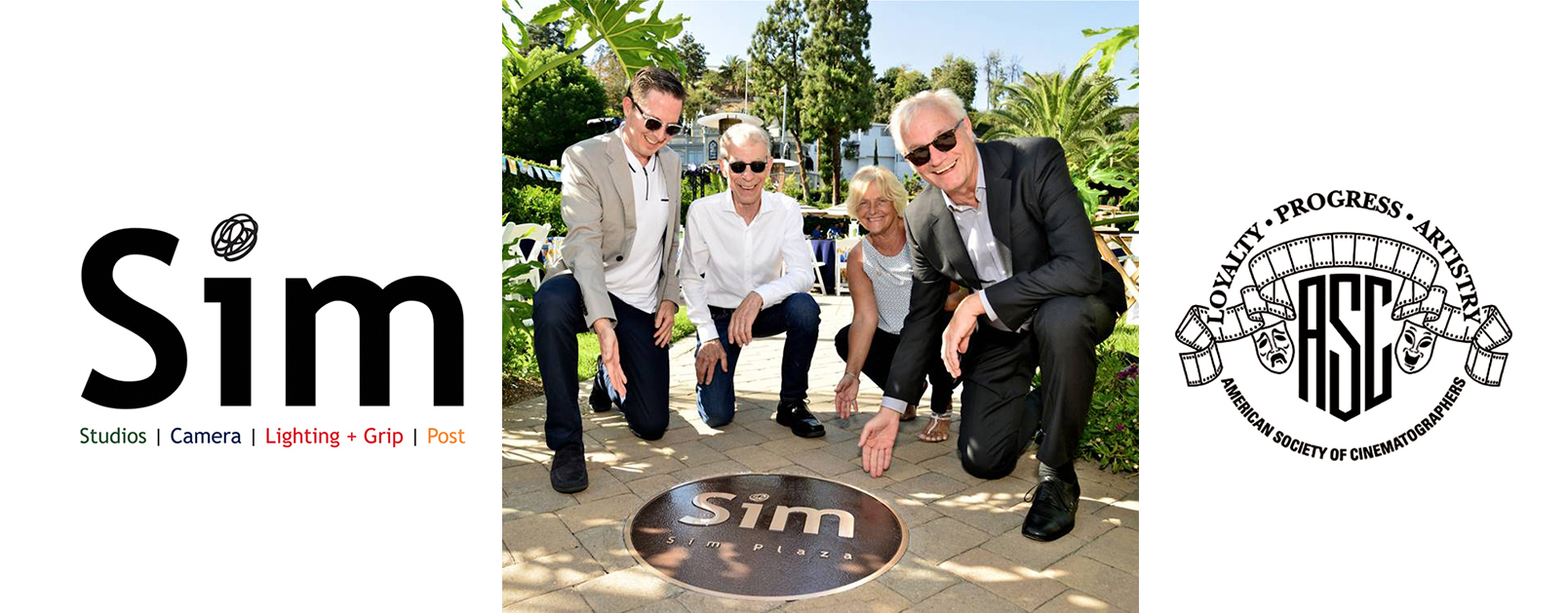
Sim and ASC Announce New Partnership in Education, Growth
Courtyard at the ASC Clubhouse in Hollywood renamed Sim Plaza to recognize the company’s generous sponsorship of Society programs.
Courtyard at the ASC Clubhouse in Hollywood renamed Sim Plaza to recognize the company’s generous sponsorship of Society programs.
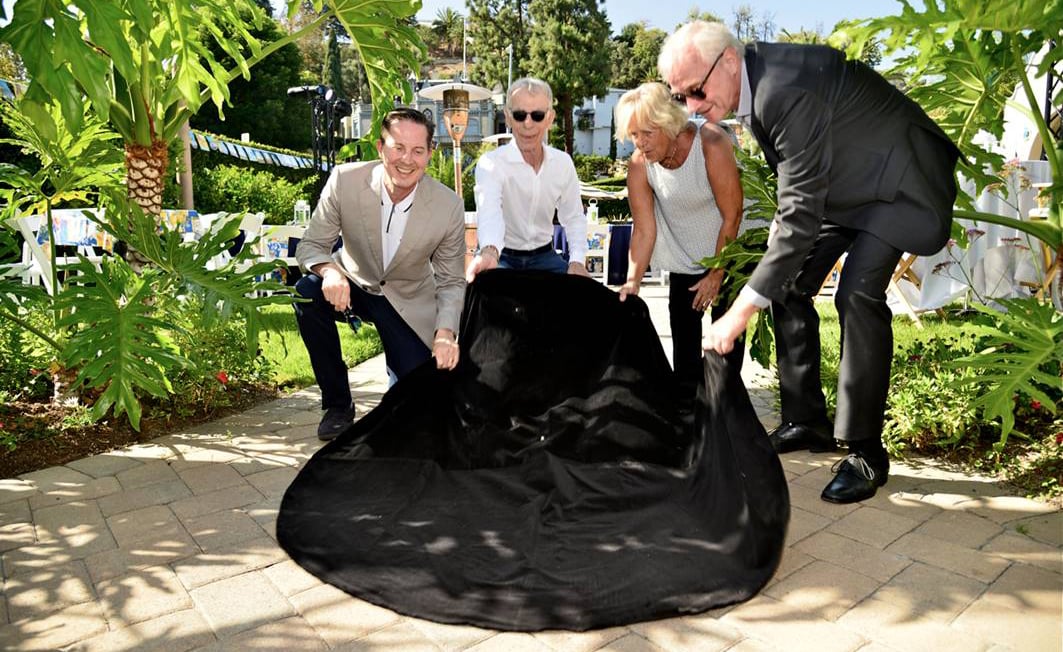
On Saturday, June 2, Sim announced a major 30-year sponsorship agreement with the American Society of Cinematographers.
Sim is a leading supplier of studios, production equipment, workflow/dailies and postproduction solutions With offices spanning North America, Sim has supported features such as Deadpool, the Oscar-winning documentary OJ: Made in America and the hit series Game of Thrones, Mr. Robot, Stranger Things and The Handmaid’s Tale.
Sim, an end-to-end solution for storytellers in film and television, and the ASC, a nonprofit organization dedicated to advancing the art of cinematography, have come together with the shared goal of driving visual storytelling forward.
During a brief ceremony, ASC President Kees van Oostrum, Sim President and CEO James Haggarty, company founder Rob Sim and ASC Events Coordinator and Awards Ceremony Producer Patty Armacost oversaw the unveiling of an ornate metal plaque installed on site to commemorate this union — a symbol of Sim’s unwavering support for the art and science of cinematography.
The big reveal took place before the beginning of the ASC’s annual Summer Splash Party, welcoming a host of industry dignitaries and filmmakers.
“It’s with tremendous pride that we announce Sim’s enhanced partnership with the ASC, based on our common goal of supporting filmmakers across the globe,” said Haggarty. “We want to help the community grow by opening new doors and creating new platforms for storytellers. Diversity and inclusiveness are front and center throughout the programs we have planned.”
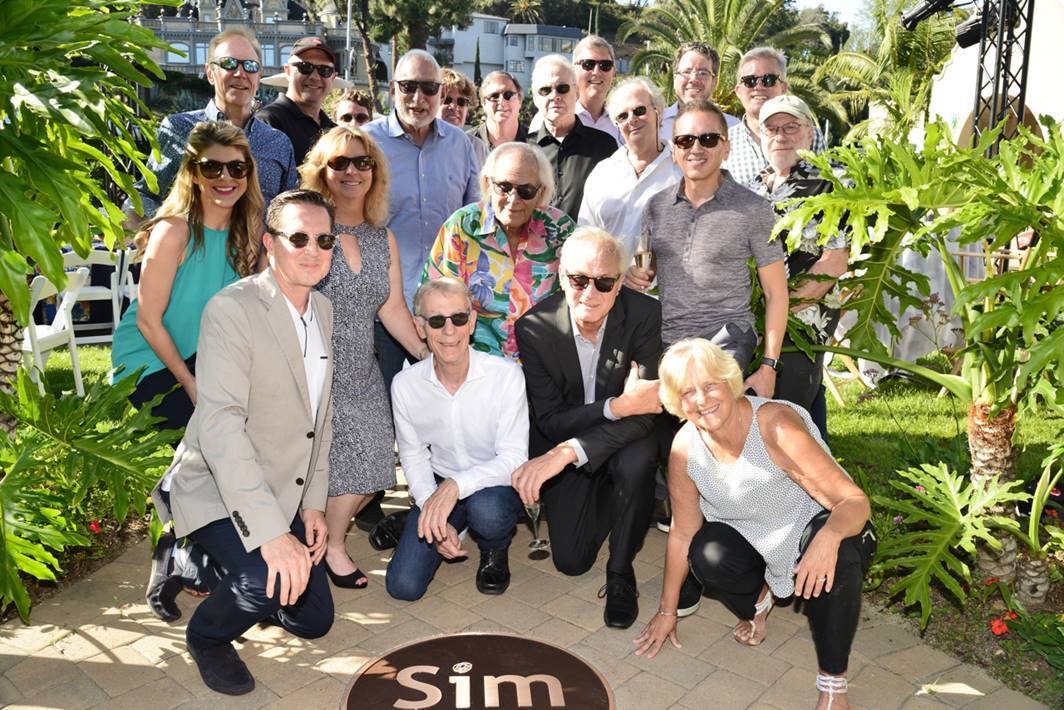
“It’s a pleasure and an honor for the ASC to celebrate this partnership with Sim,” said van Oostrum. “This sets a landmark example, and validates our role as an educational institution and as a society with a base of knowledge and creativity that represents cinematography in all aspects.”
Sim and the ASC have worked together frequently on events that educate industry professionals on current technology and its application to their evolving craft. As part of this sponsorship, Sim will expand its involvement with the ASC Master Class program, Sim Labs and conferences and seminars in Hollywood and beyond.
Sim will also host a celebration of the ASC’s 100th anniversary in 2019 at Sim’s Hollywood location.
Following the ceremony, AC joined Sim president and CEO James Haggarty in the Clubhouse for a brief discussion about this expansion of his company’s relationship with the ASC.
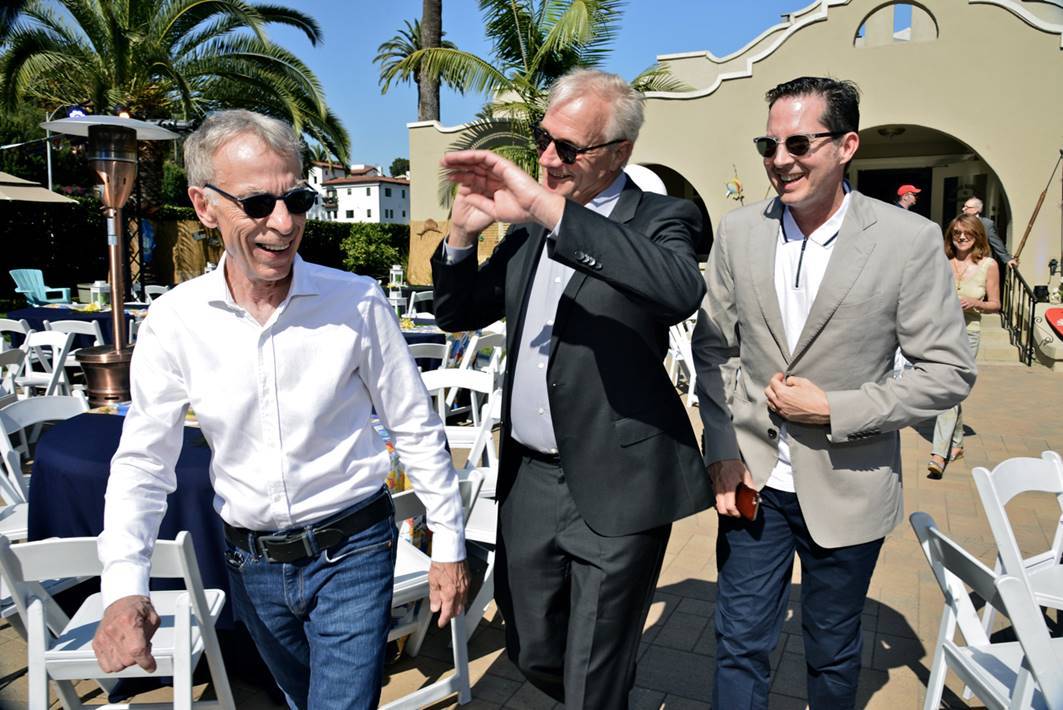
American Cinematographer: As was discussed during the unveiling, this isn’t Sim’s first collaboration with the ASC — there’s been a relationship for a long time. Tell us a little about how Sim wanted to be even more involved with ASC.
James Haggarty: It’s about how we could help continue to contribute to the community. And with the ASC now 99 years young, it’s clearly already doing a lot right as an organization. We don’t want to tell the ASC what they should do, but rather come in and ask how can we help. And it was clear that our gesture was appreciated. We’ve hosted ASC Master Class sessions in Toronto and Hollywood, sponsored the annual ASC barbecue for the last couple years, and our founder, Rob Sim, is an ASC associate member.
When you realize there’s a mutual respect and appreciation, it’s natural you’d want to spend more time with that party. As a company Sim wants to invest in programs and people that have sustaining impact. It’s not just writing a check and a photo op and see you later. We want to be able to do something that has a longer-lasting impact.
“Nobody has a monopoly over knowledge. Everyone wants to help share it and that process can always be improved upon.”
It was clear to me when we met with Kees [van Oostrum] and Patty [Armacost] a year ago, that three needs stood out: Financial resources, programming assistance and facility support. This isn’t just a Clubhouse sponsorship. It’s important that we help support the ASC’s priorities.
What Sim gets out of it is really just being seen as a trusted partner. We’re not here to come in with a sales pitch and capture an audience of DPs that we can then tell our story and earn their work. That’s not what this is about. Our people are already volunteering on ASC committees — including the Motion Imaging Technology Council and it’s Lens committee. It’s a genuine way of us getting to know people in the industry and help with the rising tide.
Talking to Richard Crudo [ASC] after the unveiling today, he asked, “How can we help you guys at Sim?” I told him that just by listening to our crazy ideas of what we could do together. It’s three legs of the stool — programming assistance, multiyear financial support that we’re happily providing and facility support. In regard to programming, it’s not just doing what the ASC is already doing. How do we create help new programs for people who can’t attend the ASC Master Class for whatever reason? How do we help provide that experience online? Also, how do we provide the ASC membership with access to things that they weren’t previously getting?
We have the editing and other post resources that can help take something — maybe not the Master Class; it may be other things — but we can get them on the web and available to members, associate members and aspiring members. In terms of facility help, we’d like to continue hosting things. We do our Sim Lab here in LA. But we’d like to do a Sim Lab in Vancouver, Atlanta, New York and Toronto. It’s place-based support, where we can be seen as a welcoming venue for people who are associated with the ASC and they know they can call on us.
Many of the biggest companies in this industry are also among the most generous in terms of supporting aspiring filmmakers and education programs. What do you think it is about this industry or these companies — including Sim, as well as Kodak, Deluxe and Technicolor, for example — constantly giving back, creating opportunities for young filmmakers and fostering education opportunities? Why is that such a consistent theme and priority?
I never really thought of those connections, but it’s true. And I think it’s because all of those companies started somewhere, too, and somebody took a chance on them that helped make them the big successes that they became. The companies you mentioned are huge, well-known international brands, but we believe Sim has achieved a certain level because of our affinity for taking a chance on people because people took a chance on us. When Rob Sim started the company by renting cameras out of his basement 36 years ago, someone said, “Okay. I’ll let you do my show.” That created an opportunity. And we’re breaking new ground all of the time with people asking, “Well, what shows have you worked on?” Then you start to name your credits they say, “Oh, okay.” But someone took a chance on us — that’s the point. And when you realize that, then you realize we should do that for others. And because of that, we, and our competitors, make a concentrated effort to support new filmmakers.
One program that we’re doing internally is to provide support for underrepresented, underserved communities. For instance, filmmakers in low-income housing. How can we help reach out and provide programs for them? They may not be able to afford the gear. They may not be able to afford to go to school. So we’re figuring out what our role in that is as a company. Not everybody is born with a camera in their hand and comes from the means. This is an expensive art form. The barriers to entry are high because you do need gear. You can be very talented but if you don’t have the tools… Well, we happen to be in the tool business. So if we can help provide tools and get those tools into the hands of people who just need a shot, then I think we’ll feel like we’ve contributed.
What we’ve done so far has been done very organically and locally because somebody is an alumni or there’s a personal connection. But what I’m trying to do is to foster that thinking and create a greater impact. Last year, I announced giving every employee a day off for volunteerism. So, it’s not considered a vacation day. It’s not considered a sick day. It’s considered a paid day off to go work on and do volunteerism.
And it’s not going to be from a particular list of organizations. If you want to go be a parent in a classroom, great. If you want to drive the elderly to their doctor’s appointments, great. If you want to serve in a cancer treatment program, great. We don’t care what it is. We just want you to do something.
If you add up the hours across a company of about 550 employees, that’s a good start to the company putting our people in the communities that we live in and who are supporting our businesses.
That sounds like a tangible way to change the DNA of a company and support the notion of giving and giving back.
Exactly. And — because I’m personally involved with a charitable organization and the more I became aware of what they do, the more I want to contribute — I’m hoping other people will want to do more past that first day. I’m hoping that we can expose people to doing things on their own time, too. So it does help the culture internally. But I’m just tapping into something I found that we were already doing individually and trying to harness it broader base, company-wide, to see how people have a broader impact. It’s okay to take a day off and go do something for your community.
The ASC was founded in 1919 on the idea of giving back — sharing information and expertise — which makes the connection between Sim and the ASC just that much more logical.
I agree. And the educational component can always be improved. There are always new tools and techniques. But it takes time and money for people to leave participates in that process. I mean, when we hosted the ASC Master Class in Toronto, I met attendees from Dallas, from South America from all over the world. I’m thinking, “Wow, these guys, they’re not only here on their own time but there’s also the big expense to come and fly in.” All in addition to tuition. So the education piece is massive and if we can play a role in helping that with new tools and putting that experience online and available to more people.... Online is not a replacement for being in a room with an instructor, but how do we make that experience as close as possible?
That kind of thinking was exactly why the ASC started publishing American Cinematographer in 1920 — to take the conversation and the educational experience outside the room and make it available to more people.
I agree. The impact that magazine has is huge. At the ASC Awards ceremony last year, one of our clients, Boris Mojsovski [CSC], won for an episode of the series 12 Monkeys. And in his acceptance speech [video here], Boris described how he grew up in Bosnia and it was always a big day when his dad would receive a copy of American Cinematographer magazine. When I heard him say that to the whole room… It was so genuine, because he loved getting the magazine. It was very influential, and here he is now, a proud, award-winning cinematographer honored by the ASC. But it’s very telling that he loved the content — it’s brain food. So education is important and it takes all kinds of different forms.
I’m also big into mentoring, in part because I’ve been a benefactor of mentoring. I’ve been asked to help mentor people and I see the benefit of mentorship. When I saw the ASC members on panels at Cine Gear this weekend I noticed the natural ease with which people want to share their knowledge. Advice is free and people can help others elevate their trade. There’s no limit to that. Nobody has a monopoly over knowledge. Everyone wants to help share it and that process can always be improved upon.

